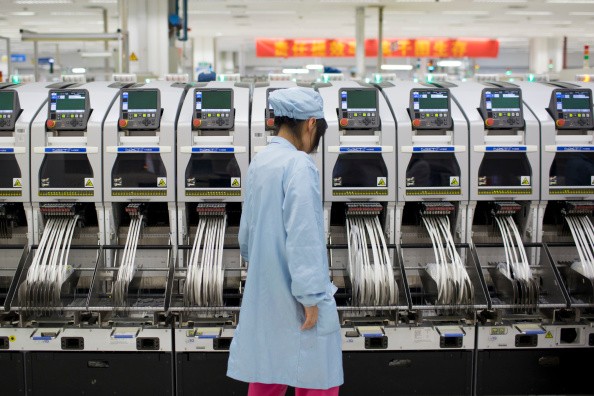A settlement deal is about to be signed by Chinese telecom maker ZTE Corp with the U.S. Department of Commerce, the U.S. Department of Justice and the U.S. Treasury, over charges that the Chinese firm sold technology to Iran, which is restricted by U.S. laws.
Citing unnamed sources, Reuters said that Shenzhen-based ZTE may plead guilty to the charges and could pay hundreds of millions of dollars in penalties.
But some people said that the final deal may be delayed or even canceled under the new administration due to changes in personnel in some departments.
The source said that ZTE is likely to plead guilty to conspiracy for violating the International Emergency Economic Powers Act and other charges that also include penalties that amount to millions.
In 2012, an investigation by the U.S. Commerce Department revealed that ZTE had shipped hardware and software information from some of U.S. tech companies to Iran's telecom carrier.
In March 2016, ZTE was placed by the U.S. on the list of entities required to obtain a license first to be able to work with U.S. suppliers. The Commerce Department claimed at that time that ZTE acted contrary to U.S. national security and foreign policy interests.
ZTE is one of the world's biggest telecom makers and the fourth largest smartphone vendor in the U.S. it also supplies handset devices to U.S. mobile carriers such as AT&T Inc, T-Mobile U.S. Inc and Sprint Corp. ZTE uses components from Qualcomm, Intel and Microsoft.
As ZTE cooperated during the investigation, the Commerce Department granted it a temporary license to allow it to do business with U.S. companies. The temporary licenses were extended several times and the latest is set to expire on March 29.
A ZTE spokesman said that the company is working with the U.S. government "toward permanent removal from the Entity List," and it is doing business in a way that "meets and exceeds export compliance standards."
The comments were made after ZTE made its filing to the Shenzhen Stock Exchange on Feb.14, although the case may still affect the company's financial situation. ZTE earns more than $15 billion annually.
Experts said that the implications of a guilty plea are still unclear but it can result in denial order that can completely prevent the companies from receiving goods and technology that came from the U.S.
However, as part of the settlement, the U.S. can suspend the order.
Washington attorney Douglas Jacobson, an export controls and sanctions expert, said that a guilty plea can only affect U.S. suppliers or customers for a limited time.
"In fact, a company that has faced the type of scrutiny that ZTE has . . . actually gives U.S. suppliers and customers a greater degree of comfort that they will be a compliant company in the future," Jacobson said. He also represents some U.S. suppliers to ZTE.
Experts added that the settlement may also possibly require ZTE to impose compliance monitoring.



























